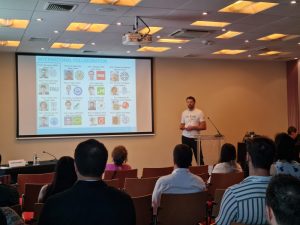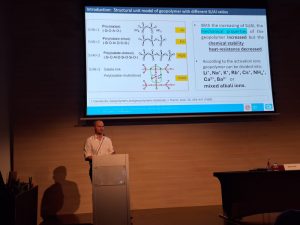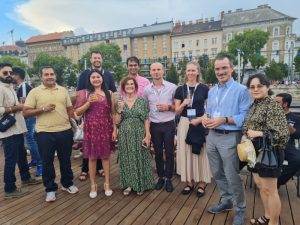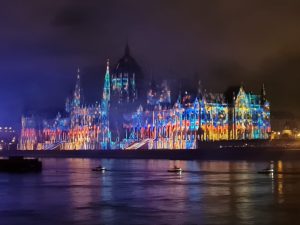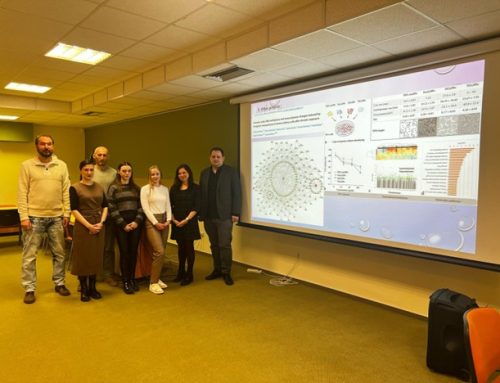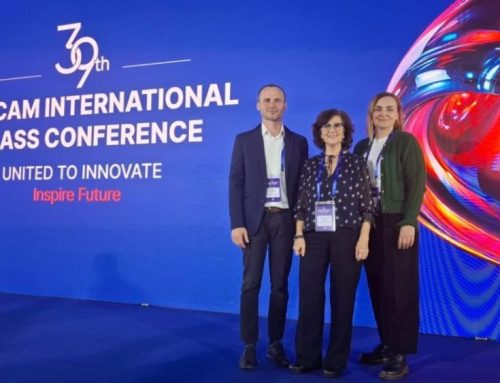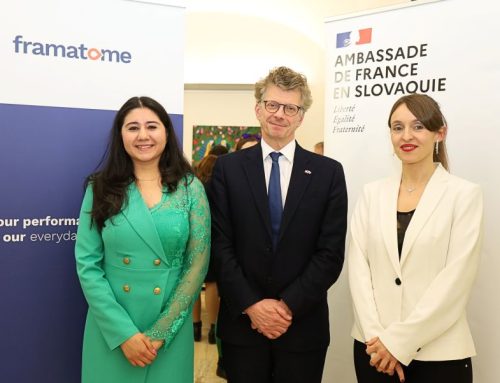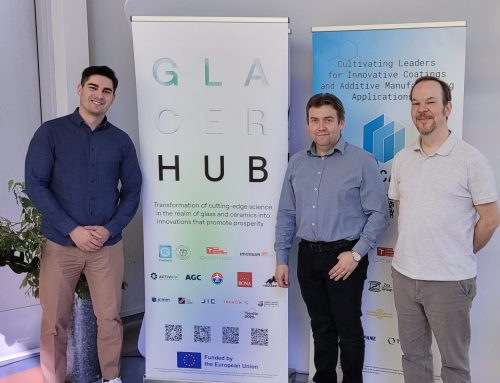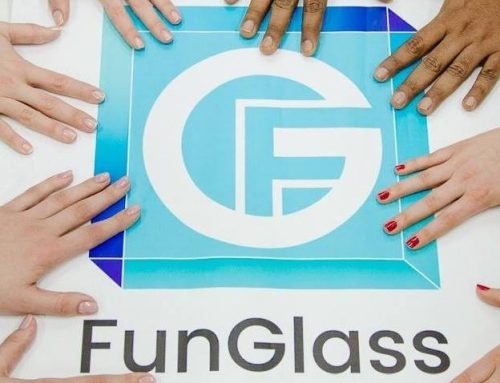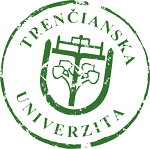FunGlass Symposium and Key Insights from CMCEE-14: Advancing Ceramic Technologies for a Sustainable Future
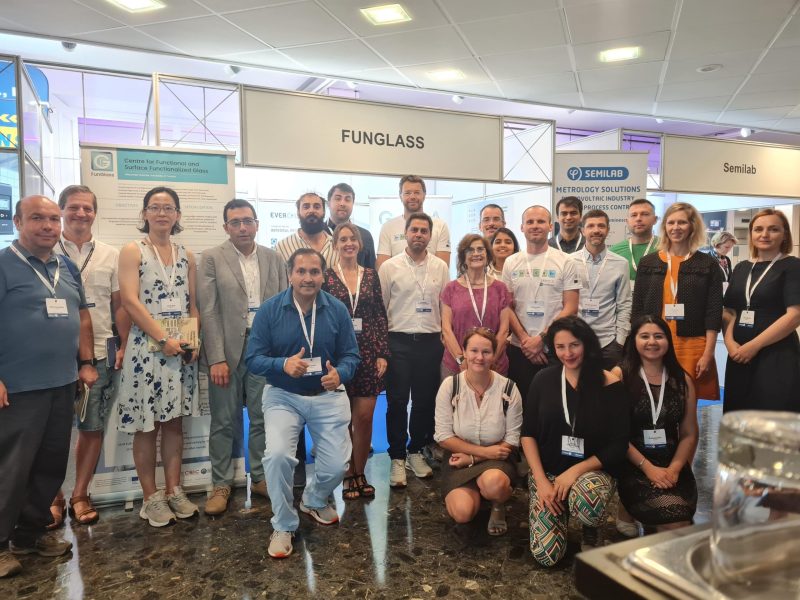
The 14th International Conference on Ceramic Materials and Components for Energy and Environmental Systems (CMCEE-14) was held in Budapest, Hungary. Since its inception in the 1980s, this conference series has built a strong reputation for showcasing cutting-edge presentations and facilitating the exchange of information on the latest developments in ceramic technologies and their diverse applications. CMCEE-14 featured over 30 symposia covering a wide range of topics, fostering global dialogue and discussion among leading experts in ceramic technologies aimed at sustainable societal development.
Our center organized its own FunGlass Symposium on August 21, where our partners and researchers presented their work. These presentations attracted the attention of experts from around the world.
Invited Lectures:
- Prof. Dušan Galusek: FunGlass: Where We Are, and Where We Are Heading at the End of the Project?
- Prof. Alicia Duran: Rare-Earth-Doped Nanostructured and Transparent Glass-Ceramics for Enhanced Photoluminescence
- Irem Unalan: Progress and Challenges in Melt-Electrowriting of Polymer-Inorganic Phase Composites
- Prof. Enrico Bernardo: Cold Consolidation of Glass Aqueous Slurries: The Cooperation Between the Chemistry of Glass and Basic Activators
Additional Lectures:
- Dr. Monika Michálková: Novel Microspheres YAG Used for the Preparation of Phosphor in Glass
- Dr. Junjie Zhao: Cold-Sintering of Phosphor in Glass (PiG) for Solid-State Lighting
- Dr. Deepak Patil: Structural Analysis of Magnesium Aluminosilicate Glass-Ceramics by High-Temperature Raman and XRD Studies
- Avnee Chauhan: Phase Transition of High Entropy Oxides (HEOs) During Spark Plasma Sintering
- Dr. Ali Talimian: Chemical Strengthening of Borosilicate Glass: Challenges, Applications, and Opportunities
- Dr. Ali Najafzadeh: Effect of Layered Architecture and Residual Stress on Contact Damage of Transparent Ceramics
- Dr. Aatif Ijaz: Multifunctional Biodegradable Nanocomposite Coatings for Corrosion Control of Magnesium Alloys
- Dr. Zulema Vargas: Multifunctional Composite Systems Based on Nanostructured Magnetite Anchored to SBA-15 for Advanced Materials Technologies
- Dr. Hana Kaňková: Monitoring the Stability of Therapeutic Ions in Simulated Body Fluid (SBF)
- Ertugrul Varlik: Robocasted Boron-Doped S53P4 Bioactive Scaffolds for Bone Tissue Regeneration
- Dr. Orhan Sisman: Fullerene (C-60) Embedded MOF Glass Composite
- Dr. Gustavo Galleani: Photochromic Glass-Ceramics Embedded with Gd3Sc2Ga3O12
+, Cr3+/Pr3+ Garnet Crystals for High-Security Multi-Mode Optical Storage and Temperature Sensing
- Dr. Diana Lago: Stabilization of Cerium and Neodymium in Alkali-Activated Glass as a Sustainable Approach for Nuclear Waste Management
- Dr. Akansha Mehta: Robust Visible Light Driven 3D α-Fe2O3/TiO2 Photocatalytic Ceramic Membrane for the Degradation of Bisphenol Derivatives in Wastewater
- Reza Samiee: ZIF-8 Metal Organic Framework (MOF)/Ti3C2 MXene Hybrid Sheets for Enhanced Corrosion Resistance of Bio-Based Vanillin Alcohol Diglycidyl Ether (DGEVA)-Silica Composite Coatings
Additionally, two of our researchers delivered invited lectures at the conference:
- Prof. Dušan Galusek: Presented in the Global Innovations in Biomaterials section on Therapeutic Ions-Doped Glass with Antimicrobial Properties.
- Dr. Jozef Kraxner: Presented in the Sustainable Materials and Systems for Energy-Efficient Building and Structures section on 3D Printed Lightweight Advanced Building Material from Waste Glass-Based Geopolymer.
The conference also featured an enjoyable social program, including a gala dinner on the Danube River. Participants were treated to spectacular fireworks in celebration of Hungary’s most prominent national holiday, St. Stephen’s Day.
We extend our heartfelt thanks to all participants. The conference was a valuable opportunity to connect, summarize the progress of concluding projects, discuss new initiatives, and exchange knowledge on the research.
